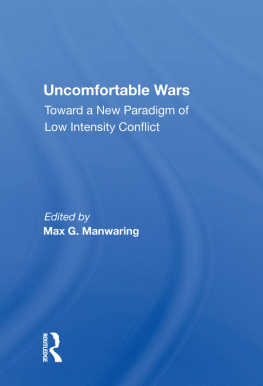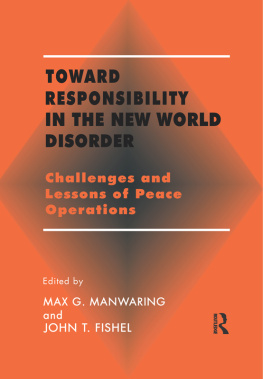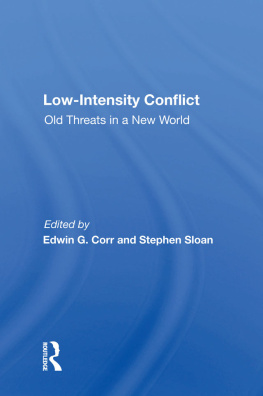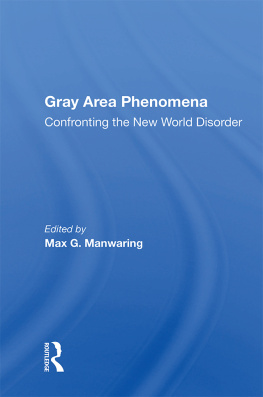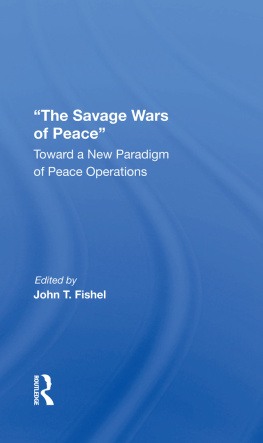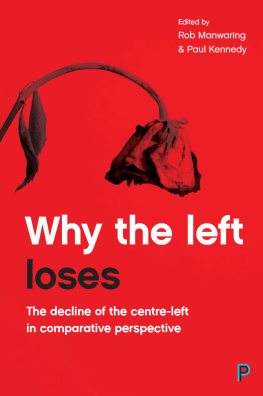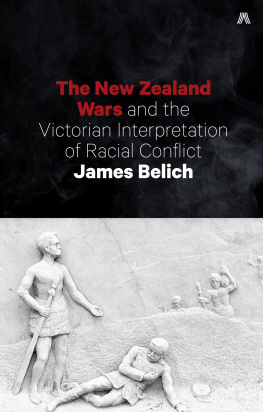Uncomfortable Wars
Westview Studies in Regional Security
Wm. J. Olson, Series Editor
Uncomfortable Wars: Toward a New Paradigm of Low
Intensity Conflict, edited by Max G. Manwaring
US Strategic Interests in the Gulf Region,
edited by Wm. J. Olson
FORTHCOMING
The Comandante Speaks: Memoirs of an El Salvadoran
Guerrilla Leader, edited by Courtney E. Prisk
Uncomfortable Wars
Toward a New Paradigm of Low Intensity Conflict
Edited by
Max G. Manwaring
First published 1991 by Westview Press, Inc.
Published 2019 by Routledge
52 Vanderbilt Avenue, New York, NY 10017
2 Park Square, Milton Park, Abingdon, Oxon OX14 4RN
Routledge is an imprint of the Taylor & Francis Group, an informa businesss
Copyright 1991 Taylor & Francis
All rights reserved. No part of this book may be reprinted or reproduced or utilised in any form or by any electronic, mechanical, or other means, now known or hereafter invented, including photocopying and recording, or in any information storage or retrieval system, without permission in writing from the publishers.
Notice:
Product or corporate names may be trademarks or registered trademarks, and are used only for identification and explanation without intent to infringe.
Library of Congress Cataloging-in-Publication Data
Uncomfortable wars : toward a new paradigm of low intensity conflict / edited by Max G. Man waring
p. cm. (Westview studies in regional security.)
ISBN 0-8133-8081-2
1. Low-intensity conflicts (Military science) I. Manwaring, Max G.
U240.U46 1991
355.02'18dc20
90-20870
CIP
ISBN 13: 978-0-813-38081-0 (hbk)
To the memory of James M. Basile
Contents
, Wm. J. Olson
, Max G. Manwaring
, Ambassador Edwin G. Corr
PART ONE
CONTEXT AND CONCEPT
, General John R. Galvin
, Max G. Manwaring
PART TWO
THE MAJOR COMPONENTS
, Max G. Manwaring and John T. Fishel
, William J. Olson
, General Fred F. Woerner
, Courtney E. Prisk
, Max G. Manwaring, Courtney E. Prisk, and John T. Fishel
PART THREE
CONCLUSIONS AND IMPLICATIONS
, Max G. Manwaring and Courtney E. Prisk
, Ambassador Edwin G. Corr
Guide
To a soldier, no war is comfortable. The environment of any type of war is fraught with danger and death on every side amidst long periods of tedium. But, what is meant here by "uncomfortable ware" is that type of conflict which, because of our recent history and the lack of consensus on the threat, challenges our traditional rationale for using national power in support of national interests. The problem is not that conflict in a low intensity environment is uniquely, physically dangerous but that it is difficult to come to grips with conceptually, that it is politically sensitive, and that it is filled with ambiguities that cloud its nature. The chapters of this timely book present cogent efforts to make the understanding of low intensity conflict issues clearer.
To understand the nature of this level of conflict and to seek to respond to it when it affects the interests of the United States or its citizens is the duty of a responsible government. But no democratic government can hope to address these problems without informed analysis, reasoned debate, and considered decision making. It is an important area for discussion. These essays offer the opportunity both to open and to continue a dialogue of this uncomfortable but important field.
Recent changes in Europe and the breathtaking spread of democracy around the world have brought an end, so it would seem, to the cold war. For the United States, this means a resounding success for its postWWII policy of containment, but it also means greater ambiguity.
Containment focused largely on the direct and indirect threat posed by the Soviet Union to U.S. and Western European survival. In the immediate post-war years and later, the international system evolved from a multipolar Eurocentric condition into a largely bipolar one in which the only serious threat to U.S. and other Western interests was the Soviet Union. This fact made U.S. policy making relatively straightforward. The clarity of the threat encouraged and sustained a consensus that saw the nation take unprecedented steps to engage internationally rather than retreat into isolationism.
There was a cost. Unfamiliar with the nuances of diplomacy, unaccustomed to world power, and given to moral imperatives, the American public, while supportive, was uncomfortable with involvement overseas, especially in dealing with governments that did not seem to measure up. There was also a revisionist strand in American post-war history that saw the international role of the United States as a dual evil: it lead to U.S. imperialism overseasthe cold war being an American invention to spur economic expansion while it corrupted people at home. Still, the immediacy of the threat was real enough to underwrite a broad consensus on the main points of U.S. foreign policy.
The intervening years have also taken their toll. Vietnam, Watergate, and now the decline of Soviet power have caused a shift in focus. Consensus is less certain. Meanwhile, the international system has continued to evolve. It is no longer bipolar. It is once again becoming multipolar, but it is a very different multipolarity. The emergence of numerous states, characterized by unresolved internal political, social, economic, ethnic, and religious differences, has created a profoundly unstable international environment. In addition, problems of endemic disease, environmental degradation, and sheer incompetence have helped to render many local governments unable to govern effectively and fairly. Numerous groups with access to drug-related money or other sources of funding challenge many governments and make violent internal conflictsmany of which are internationalizeda constant feature of modem political environments.
The spread of "democracy" to states with little preparation for it has not made the world necessarily more peaceful or less dangerous. The decline of the cold war does not necessarily mean that the United States faces no serious international challenges. The delicate nature of democratization and the vulnerability of a now very interdependent, global economy to senseless violence and spreading political chaos will require close attention. The need to learn to manage and resolve local conflicts and encourage just political order will remain essential goals. In the process of looking to the future, in re-examining America's place in a changing, troubled world, an understanding of low intensity conflict is essential. These essays help to advance that understanding.
Wm. J. Olson
Series Editor
This volume is part of a continuing effort initiated by General John R. Galvin to revitalize strategic thinking as it pertains to small wars. It evolved from the work of seven practitioners who have been involved in these "uncomfortable wars" for some time. Their work has been brought together to discuss and operationalize General Galvin's call for a new paradigm to fight effectively the most prevalent and most likely form of conflict in the world today-insurgency.
The study of the fundamental nature of conflict has always been recognized as an important step toward success in conventional war. It is no less relevant to insurgency. Given the high probability of the United States being involved in such internal struggles over the next several years, the failure of civilian and military opinion and decision makers to make an effort to understand this type of phenomenon would be unconscionable. This book makes a special contribution to the understanding needed to formulate and to implement effective efforts in the contemporary international security arena.


